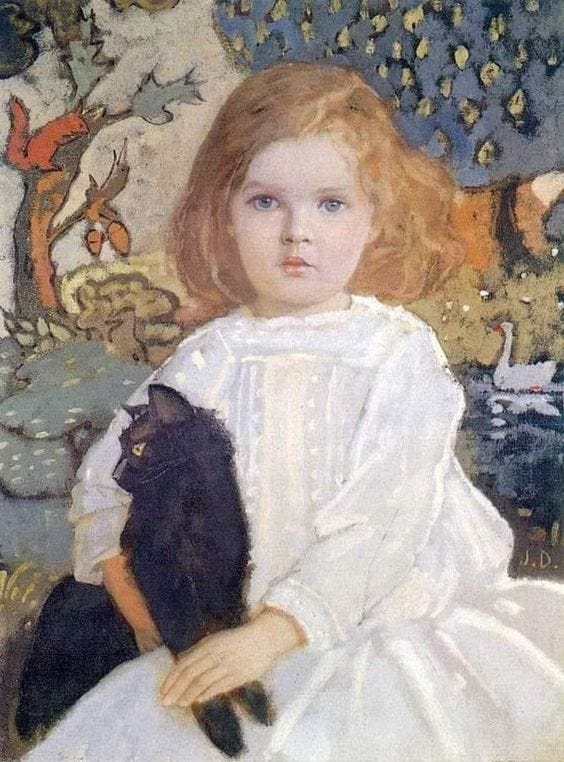When poet Jorie Graham was three-years-old, she swirled her fingers through her mother’s still-wet oil painting. Her horrified mother picked her up and threw her across the room. What she learned from that experience, she said, was that the art her mother spent so much time creating was something urgent and necessary and real, “more real than me.”
It was a stunning revelation to one so young, and you might imagine it was accompanied by sense of self-pity or horror. But it wasn’t. It was accepted as a kind of revelation, or truth.
It would be a rather startling revelation for any of us, at any age, to realize. But it strikes me, too, as true: that “art” is more “real” than the individual, the one making the art or the one viewing it, or in Graham’s case, destroying it.
Mozart’s music, Van Gogh’s paintings, Shakespeare’s sonnets and plays are all in some ways more real than the individuals that produced them, having outlasted the individual and making more of an impact upon what we conceive as the “real world” which encompasses the here and now along with all the history and culture of ages past.
The art itself encapsulates something important, vital, and enduring about the individual who created it, something more “real” about them than the mere sum of their daily existence. And I dare say, something more real about the individual moved by that artwork than the mere sum of their daily existence.
We catch glimpses of that “art more real” in us when we’re moved by Mozart’s music, or Van Gogh’s paintings, or Graham’s poetry, and the works of other artist, architects, designers, filmmakers, and performers. We’re moved by them because we recognize or identify with something in them that touches us in an intimate or powerful way—or touches an intimate and powerful part of ourselves, that part which, like art, is more “real” than “me.”
The thing that’s more “real” than “me” moves through all of us and connects all of us, individually and collectively. It’s the “Thou art That” that encompasses both. When we tap into that, we feel it, we know it, we are it, it is Us, individually and collectively.
There’s a kind of holiness about it: these intense moments of being moved by music or art, experiencing that call and response that melts into a single wholeness of feeling, a unity of Being. It’s the “Thou art That” we hear of from so many sages and saints, the core of that Perennial Philosophy that Aldous Huxley wrote about in his book of the same name. Notice how the word “art” connects “Thou” and “That.”
There is something in “me” more “real” than me as a mere person. More real than my passage through time in a human body. And yet, it’s not separate from my individual being, this particular life with all its loves and heartaches. It includes that and all else: the collective I, as it were. The one in All and all in One.
There’s such a comfort in knowing this. Being this. A vast door opens in front of me and I walk through.





Thank you Deborah. It's funny to me that for my entire life I've known these things intrinsically. But here's the rub, for others. Whether I like a particular piece of art or not, I've always had respect and appreciation for the creator. Case in point, I don't like Rap music. I see most of it as not even being music. I do, however, recognize it as art. I appreciate the creativity of it. Yet for myself, my own creative produce, not so much. Anything that I wrote, anything that I fashioned out of metal or wood, was just meh. I've known my whole life that I am an artist, but I denied it. Until I started writing again after a 30 year hiatus.
My father was an artist, yet he didn't allow himself that self recognition. It was not a title permitted to him, not by his father nor by society. It's interesting that he died at 54, convinced he was an abject failure and I came to accept what I am at 54.
I may never see my avocation provide a living, but I'm now more cognizant of my needs vis a vis what I do for that living. I've mentioned before in one of posts that the satisfaction I've derived from a job is directly related to the amount of artistic expression it allowed me. Whether it be landscaping, carpentry, as a machinist or even in retail. My soul suffers when I cannot create. Now that I'm older than my father ever was, I have that much more love for him and a deeper understanding of his suffering. The horrors I inflicted upon myself in my life seem to all have been caused by this willful blindness. I'm much more at peace with myself now. Still dirt poor, but that doesn't bother me as much.
I liked this piece ... reminded me of so much of myself when very young, lost in the romance of art. Walking through a forest of symbols, a la Baudelaire. I think art though, can lead one astray. Rimbaud might of been right, it is a false door but a beautiful one, nonetheless, this meaning making art washes oneself with. Throughout the years, I've written about the meaning of art, why it exists as a cultural form. There are many answers. At bottom, it is like you allude, to live outside ourselves, a wish to exist outside the strong hands of time, to be more real, to be timeless. It is a revolt against entropy. Ultimately a failure, even Shakespeare will one day be forgotten. But for our moment here, in time, it suffices. "Poetry makes nothing happen. It survives" Auden. Thanks for surfacing these memories in me!